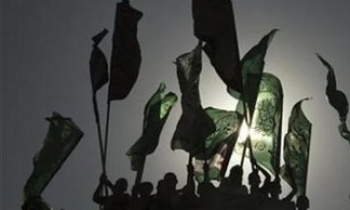Britain's highest court handed a protective shield to investigative journalism yesterday, when it ruled in a landmark judgment that newspapers and broadcasters who act responsibly and who are reporting on stories of public importance need not fear libel actions.
The ruling in favour of a "public interest" defence for important stories brings English libel law more in line with that of the United States, where the media have traditionally enjoyed much more freedom to write about public figures as long as they do so responsibly.
Five law lords unanimously overturned high court and appeal court libel judgments against the Wall Street Journal Europe in December 2003 and quashed damages awards totalling £40,000 to a Saudi billionaire businessman, Mohammed Jameel, and his companies over an article which said the Saudi Arabian authorities were monitoring the bank accounts of prominent Saudis for evidence of supporting terrorism.
The judges ruled that the lower courts had been interpreting an earlier protective ruling in a case brought by the former Irish taoiseach Albert Reynolds too restrictively and set out the principles that should apply in future libel cases.
They held that where the topic of a media investigation was of public importance, relevant allegations that could not subsequently be proved true should not attract libel damages if they had been published responsibly. In deciding whether the publication was handled responsibly, judges with "leisure and hindsight" should not second-guess editorial decisions made in busy newsrooms.
Lawyers said the ruling considerably reduced the "chilling effect" libel law had long exerted on freedom of speech. Lord Hoffmann, delivering the leading judgment, said the question in each case was whether the media outlet "behaved fairly and responsibly in gathering and publishing the information".
If the journalists did behave fairly and responsibly and the information was of public importance, the fact that it contained relevant but defamatory allegations against prominent people would not permit them to win libel damages.
Lady Hale, one of the law lords, said: "We need more such serious journalism in this country and defamation law should encourage rather than discourage it."
Geoffrey Robertson QC, author of the textbook Media Law, who represented the Journal, said: "The decision provides the media in Britain with an increased freedom to publish newsworthy stories. It frees serious investigative journalism from the chilling effect of libel actions, so long as the treatment is not sensational and the editorial behaviour is responsible.
"The ruling also frees investigative journalists, authors and broadcasters to publish and defend stories without danger to their sources."
The law lords ruled that Mr Justice Eady, who presided over the libel trial in the high court, had been wrong to hold that publication was not in the public interest because it breached an agreement between the American and Saudi Arabian governments to keep the monitoring of accounts secret.
Lord Scott said: "It is no part of the duty of the press to cooperate with any government, let alone foreign governments, in order to keep from the public information of public interest, the disclosure of which cannot be said to be damaging to national interests."
The judges said the 10 steps laid down in the Reynolds case for responsible handling of a story, such as checking sources and seeking comment from the subject of an allegation, were examples, not hurdles for the media to get over.
The actual steps taken would vary with the nature and sources of the information, said Lady Hale. "But one would normally expect that the source or sources were ones which the publisher had good reason to think reliable, that the publisher himself believed the information to be true, and that he had done what he could to check it."
Mohammed Jameel said: "What the Wall Street Journal Europe wrote in February 2002 was that the bank accounts of the Abdul Latif Jameel Group were being monitored at the request of the US authorities. That was not true. Mr Justice Eady and the court of appeal ruled that I was libelled. The House of Lords ruled that I was not, because it was reasonable for the Wall Street Journal Europe to print something that was false. So be it. I was only ever interested in proving that the allegations were untrue."
FAQ Law of libel
What is the usual rule in libel cases?
If the allegations are defamatory, those publishing them must prove them or risk paying libel damages.
How was the Reynolds judgment in 2001 supposed to change this?
It gave the media a defence if the subject matter was in the public interest and was reported responsibly, even though the allegations could not be proved. One law lord, Lord Nichols, laid down 10 steps a journalist might take in deciding if publication was responsible.
What happened post-Reynolds?
The courts interpreted the 10 pointers as hurdles to be got over, rather than as examples or pointers. The defence rarely succeeded.
How does the Jameel judgment change things?
It does what Reynolds was supposed to do and gives the media much more freedom in how it reports important stories. In looking at editorial decisions, "weight should ordinarily be given to the professional judgment of an editor or journalist in the absence of some indication that it was made in a casual, cavalier, slipshod or careless manner". The defence still provides no protection for kiss-and-tell stories.









